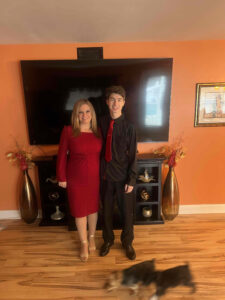
“I am A immigrant from Kosovo”
Recorded
November 28, 2023
Archived
November 28, 2023
20:34 minutes
0:00 / 0:00
Id:
APP4174892
Description
This Interview is Ari Haubois (16) interviewing his mother, Harieta Haubois(41) about her experiences as an Albanian immigrant. They both talk about life and culture within Kosovo, along with her experience with war and moving to America at only 17. She talks about the struggles of being an immigrant and how she adapted to American culture. This interview was recorded In Egg Harbor Township on November 26th.Participants
-
Ari Haubois
-
Jeta Haubois